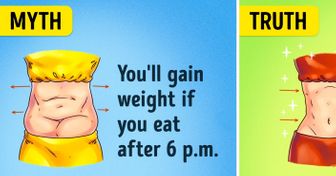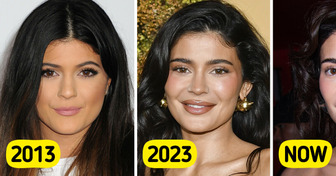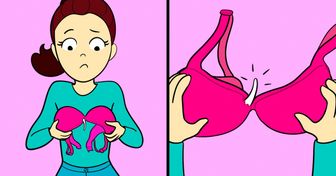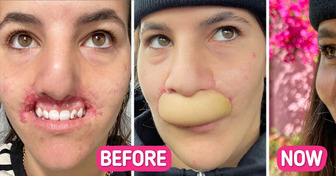15 Foods You Can Eat a Lot of and Still Not Gain Weight

The tendency to gain weight is evolutionally determined because, for thousands of years, homo sapiens had to survive in a time when there was a limited amount of food resources. We had to hunt for food and store it, and those who were good at it were ahead of the others. Modern life is different but people are still wired to gain weight. That’s why many people end up starving themselves while believing myths about healthy dieting that we want to debunk in this article.
When a person’s body mass index (BMI) is normal, they have a good chance of living a long life. That’s why trying to lose excess weight is definitely worth it. However, you should be careful when battling stubborn pounds. Bright Side found out which advice it’s better to avoid and why.
1 tsp of brown sugar contains 17 calories. 1 tsp of white sugar contains 16 calories.
Many people who try to lead a healthy lifestyle believe that brown sugar contains calcium, potassium, iron, and manganese, all of which are all beneficial for the body. However, their amount is so small that it’s really doubtful you’ll get any of the health benefits.
These types of sugar hardly differ — the key distinctions are in taste and the influence they have on pastry dough.
Oatmeal is only good for you if you make it yourself and definitely not good if you poured boiling water into the processed instant mix. Instant foods contain a lot of carbs, the amount of which will increase if you add fruits, honey, or nuts to the mix.
That’s why if you really want to eat healthy food for breakfast, you should spend dedicate about 10 to 15 minutes to cook the oatmeal yourself.
Almost all diets and healthy dieting rules claim that vegetables are good for you and you should consume as many as you can. But there are pitfalls here too. We rarely think about where those vegetables we buy and eat were grown. Many of them contain pesticides and nitrate. You can read our article about choosing fresh and tasty vegetables and fruits here.
Some vegetables can have a negative influence on the blood sugar level in your body. It depends on the individual features of one’s body. For some, it’s potatoes, for others — tomatoes. You should be careful with vegetables but it’s pretty pointless to deny all the beneficial effects of eating them.
Only the dosage of coffee determines how energized you’ll be after drinking it. On average, caffeine requires 15 to 45 minutes to spread through your bloodstream and wake up the body. The effect weakens during the following 5-6 hours. That means that if you have a cup of coffee at 8 AM, you’ll feel twice as tired by 2 PM.
Coffee provokes a rapid rise of blood sugar that leads to the feeling of a burst of energy, and as soon as the glucose level drops, your “battery” dies. That’s why coffee won’t make you feel strong and energized all day long.
However, this beverage has a lot of benefits for the body, so it can do more than just give your brain a jump-start.
One of the main reasons this myth is popular is because of the olive oil burning point. Many people think that the food won’t have time to fry properly before the oil burns out, but this is a myth. The smoking point of extra virgin olive oil is somewhere between 380°F (193°C) and 410°F (210°C), depending on the impurities and acid content of the olive oil: the better the quality, the higher the smoking point.
Plus, olive oil isn’t as beneficial for our health as we’re usually told. While it contains vitamin K, iron, potassium, calcium, and sodium, there isn’t a high enough amount to have much influence on your health.
We’re sure you’ve heard that sea salt is better than table salt. In fact, it’s not true. They’re both made of salt deposits in the seas. Table salt gets processed and cleaned of all contaminations while sea salt might contain various microelements.
Don’t forget that table salt is iodine enriched (40 mg/kg), the lack of which can lead to serious health problems. Besides iodine (0.7 mg/kg) and other impurities, sea salt might contain heavy metals. However, the amount of beneficial and toxic components is pretty small, so it’s highly unlikely they’ll influence your health.
High-fat dairy products are rich in high saturated fat and contain a lot of calories. That’s why people on a diet try to eat only low-fat dairy products. High-fat milk and cottage cheese can potentially increase the risk of heart disease.
However, scientists came to the conclusion that this was not true. Consuming high-fat dairy products has no influence on the development of cardiovascular diseases and even lowers the risk of obesity.
In fact, calories consumed with a candy bar and those contained in Brussel sprouts are totally different as they go along different metabolic ways. They also have a direct impact on the fat burning process, hormones, and the centers of the brain that are responsible for your appetite.
For example, a high protein diet can boost the metabolic rate up to 80-100 calories a day and decrease the feeling of hunger. That means calories do differ.
In fact, it’s not. The time that you consume calories doesn’t matter to your body; what matters is the quality and the amount. Scientists from the US proved this using monkeys in their survey. They found out that monkeys that consumed food at night didn’t gain more weight than those who rarely ate at night.
Again, the “burn more than you consume” principle works for everyone who doesn’t suffer from serious health problems.
A regular diet means a cut in calories intake. It doesn’t really matter what foods you eat to reach that goal: some doesn’t eat fats while others don’t eat proteins and carbs and some people simply cut back on food entirely. Anyway, if you strictly follow your diet, you will definitely lose weight. However, if you go back to your regular eating habits, your excess weight will return, as well.
It’s not fair to claim that diets don’t work. The truth is they are all effective in their own ways, but to keep the result you reached, you’ll have to cut back on your favorite foods for a long time. Experts believe we shouldn’t follow various diets but should stick to a balanced eating plan that is good for you.
Do you know any myths about healthy dieting? Share them with us in the comments.











